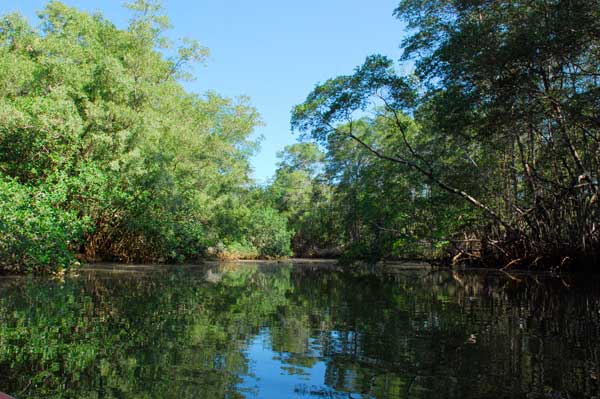
Nosara Rive, photo – Felipe Lopez
The case law governing water in Costa Rica is complicated and changing. The Voice of Nosara spoke with Silvia Gamboa, who is an Associate Attorney specializing in environmental law at Facio & Canas in San Jose, to better understand the issues involved.
Voice of Nosara: Does every citizen or household in Costa Rica have a legal right to water?
Yes, the Constitutional Chamber throughout its case law has ruled that the right to water is recognized as a fundamental right, linked to other fundamental rights like health, life and basic services, and therefore has repeatedly ordered public institutions to comply with that obligation.
What is the name of the law that guarantees this right and when was it passed?
Although the Constitutional Chamber in its case law has established the right, originally, this interpretation came from the international Community when in 1988 during the San Salvador Protocol, the Parties, including Costa Rica established the right to a healthy environment and basic public services. Furthermore, the United Nations has interpreted that water is an essential human right linked to all other human rights.
Under what conditions or in what situations can a citizen (or developer) be denied access to a water permit or meter?
The services and access to them are guaranteed and the service should be provided in an expedited form. According to the Constitutional Chamber’s interpretations, the public authorities may not discretionally decide when to provide a service if it is directly related to the right to health.
Specifically in the case of ASADAS, the Constitutional Chamber has interpreted that the service must be rendered only if it is technically feasible. Therefore if the system is saturated or when allowing new users may affect the right of existing users, the service may be denied. Nevertheless, this has to be determined by a technical study provided by AyA.
The law allows both private and public ASADAS: are both legally compelled to charge exactly the same water rates?
Rates are established by the Public Services Regulatory Authority (ARESEP in Spanish) and ASADAS may vary them under the maximum established but not above it.
Can a private ASADA legally use any other criteria to evaluate a request for a permit or meter besides availability of water and adequate infrastructure?
Other technical criteria may be used such as risks of salt water intrusion or pollution, but they must be technically validated by AyA.
In what cases and in what circumstances can an ASADA legally declare a moratorium on permits or meters?
Since access to water is guaranteed, ASADAS may legally declare a moratorium on permits or meters only in the cases when the system is saturated and when allowing new users may affect existing users, as determined by technical studies of the AyA.
If water rates are by law limited, how can an ASADA legally raise additional funds to explore and develop the infrastructure for new sources to meet anticipated future demand?
If the ASADA is providing services under circumstances that are not allowing it to maintain its financial equilibrium, it may request an adjustment in rates. It may also request an increase for the protection of water, environmental costs and services.
Facio and Canas website – www.fayca.com
|

